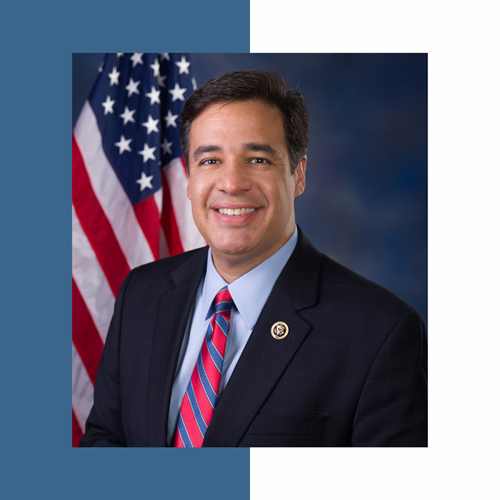Farm Bureau believes it is important for you to have relevant information upon which to base your vote when you consider candidates for statewide elected offices.
Each qualified candidate in a contested general race was given the opportunity to answer questions on topics
selected by the IFBF Board of Directors.
Similar to televised debate criteria, candidates were required to meet a minimum level of campaign donations raised according to the Secretary of State’s office.
Below are the answers from the candidate in their own words and have not been edited. This information is provided here for you so you can make an informed decision at the polls on November 8th.
Ammon Bundy - Running for Idaho Governor

1. What challenges do you see facing agriculture in the next five years? What is the best way to address those challenges?
- Water, land and federal funding. As population surges, environmental control of land and water increases and as federal funding and subsidies dry up, farmers are facing significant challenges. The best way to address these challenges is to become more independent as a State. The State of Idaho must diminish its independence in four ways to persevere agriculture. 1) Replace federal funding with easy access private/state funding giving farmers capital without federal strings attached. 2) Take back federal lands, opening up non-agriculture lands up for housing development to preserving the agricultural land. 3) Protect Idaho farmers from the EPA while providing safe farm friendly environmental standards from the Idaho Legislature. 4) Get Idaho's water diversion and hydro power supplies in the control of the local people protected by the State of Idaho.
2. Why are property rights important and what can you do as an elected official to help preserve property rights in Idaho?
- Property rights are the American dream and without the freedom to own and control property each person is at the will of those who control it. All wealth comes from the earth, everything we use and benefit from comes from the earth. Securing private property rights are essential to making sure the land and resources do not become controlled by a small group of people. My plan is to eliminate property tax and replace it with a consumption to fund local government. this way the state cannot take private property for non-payment of taxes. Also, minimizing federal, state and local control of private property to criminal jurisdiction only is crucial to protecting private property ownership. Supporting infrastructure to assist property owners to better access and use their private property is also important. Justly prosecuting those who damage, steal or deprive property owners of their property is essential.
3. How can Idaho best balance the needs of all land users when it comes to multiple uses on state and federal lands?
- The state must take back its lands and resources from the federal government and create strong legislation so the land is preserved for hunting, fishing, camping, alongside those who are using the land to graze, farm, mine and log, among other uses. I believe the multiple use (public) lands in the state should be controlled by the local county governments (under protective state legislation) with use and access as the primary objective. 61% of Idaho's land is controlled by the federal government and is being closed up and restricted from local use and benefit.
4. What is your position on Idaho water rights and the priority doctrine (first in time, first in right)?
-I believe the doctrines of first in time, first I right is the only just practicle way to adjudicate water rights in the west. However, it must be in conjunction with the beneficial use doctrine of use it or lose it so the water rights do not end up in the hands of a few people or the government. State or federal agencies should not be able to claim and control water rights differently than the people. State and federal agencies should not be allowed to claim "wildlife" (or other uses) as a beneficial use and hold the water rights away from the people indefinitely.
5. With the rapid growth in the state, how does Idaho maintain its values and principles and avoid excess regulation?
- Many challenges come with rapid growth but the principles of government should not change. The purpose of government is to secure the rights of an individual, not to control them. I believe growing out in Idaho and not up is important to keeping our conservative values. People in dense cities generally tend to lose their grounded view on life, the land and resources and their relationship with God. Dense pollutions typically control the laws to benefit themselves and usually become adverse to the rural people. Expanding our towns and cities to grow out and not up will help in preserving Idaho's conservative values. Also, minimizing government welfare and state dependency will help secure Idaho's conservative values. By eliminating most state welfare, those in Idaho living off of government handouts (not willing to work) will move to other states and those looking to move for handouts will not come to Idaho. This will leave a vibrant, producing, conservative populace in Idaho.
Brad Little - Running for Idaho Governor
 1. What challenges do you see facing agriculture in the next five years? What is the best way to address those challenges?
1. What challenges do you see facing agriculture in the next five years? What is the best way to address those challenges?
- Idaho’s incredible growth comes with many opportunities but also challenges for Idaho’s important agricultural industries. Just to name a few - federal regulation, water, and competing resources. Growth is best managed at the local level, and we need to make sure local communities are planning for “smart growth.” Farms feed America and power Idaho’s economy, and family farms need to remain part of the fabric and heartbeat of our local communities. During my first term we have made unprecedented strategic investments in water infrastructure and quality. These investments will better position Idaho to combat some of the excessive regulations coming down from the Biden administration
2. Why are property rights important and what can you do as an elected official to help preserve property rights in Idaho?
- Property rights are enshrined in Idaho law. As Governor, I have worked hard to protect and maintain the lightest hand of government on private property owners. As blue states around us continue to disregard private property rights, Idaho will continue to protect the dream of most Americans to feel safe and secure in the ownership of their property.
3. How can Idaho best balance the needs of all land users when it comes to multiple uses on state and federal lands?
- Idaho has abundant and vast public lands, and we need work to increase access for recreation and pragmatic resource management. Idahoans depend on these lands for their livelihoods, and I will continue to push on the Biden administration for the responsible
management of our lands in Idaho.
4. What is your position on Idaho water rights and the priority doctrine (first in time, first in right)?
-As.a rancher and farmer, I understand the scarcity and importance of water in Idaho. Without the priority doctrine we would not be able to prioritize the delivery of water in a way that safeguards our property rights. Some of my investments in water include more efficient storage and delivery systems to stretch this finite resource as far as possible.
5. With the rapid growth in the state, how does Idaho maintain its values and principles and avoid excess regulation?
- We need to continue investing in our rural communities and promote responsible and reasonable land management because our communities rely on it. Farmers, ranchers, loggers, and mill workers depend on continued, predictable access to our natural resources.
During my first term I reduced regulatory friction at the state level and made Idaho one of the friendliest places to do business. In fact, we cut or simplified a remarkable 95-percent of regulations since I took office! I am proud that Idaho now claims the title of “least regulated
state in the country.”
My family has a long history in Idaho agriculture, and I understand firsthand the negative impacts of excessive regulation. With our efforts to cut red tape, we are removing rocks from
the shoes of small business in Idaho.
Stephen Heidt - Running for Idaho Governor
 1. What challenges do you see facing agriculture in the next five years? What is the best way to address those challenges?
1. What challenges do you see facing agriculture in the next five years? What is the best way to address those challenges?
- Farming and ranching are difficult ways to make a living, and everyone who eats should be grateful for the hard work of farmers and ranchers. Idaho is regularly the top Western state for per capita farm income, which means that it is crucial for elected officials to support an industry that provides so many jobs for Idahoans and so much revenue for Idaho’s economy. Unfortunately for Idahoans and Idaho agriculture, the Idaho Freedom Foundation has been attempting—and sometimes succeeding—to subvert the sacred bond between Idahoans and their elected representatives, pressuring them to enact laws that hurt Idahoans and Idaho agriculture but that benefit the dark money donors of the IFF. This is why Chuck Winder, the Republican leader of the Idaho Senate, called the IFF “one of the biggest threats to our democracy in our state.” Wayne Hoffman, the president of the IFF, has said his vision for the group is “to be the most influential organization in the state – we want lawmakers and other policymakers to call us up and ask what constitutes good public policies, and then act accordingly”. In other words, Hoffman wants the IFF to become so powerful that the Idaho Farm Bureau and other organizations who actually represent hardworking Idaho families will be effectively required to submit their bills to the IFF for approval. Agriculture is the single largest contributor to Idaho’s economy, and agriculture should not become a subservient supplicant to the IFF and its out-of-state dark money donors.
2. Why are property rights important and what can you do as an elected official to help preserve property rights in Idaho?
- I believe that property rights are crucial to the freedoms and liberties guaranteed by the U.S. Constitution. In recent years, the IFF and their lackeys in the Idaho legislature have been attacking the property rights of Idaho’s farmers and ranchers. In 2019, with the support of the IFF, Senate Bill 1151 was signed into law by my opponent, Gov. Brad Little. This bill reduced payments for wildlife damage to crops and livestock. This is a good example of a foolish and short-sighted effort to reduce government spending even when Idaho farmers could be driven into bankruptcy by large-scale wildlife damage. If Idaho won’t let farmers and ranchers drive off wildlife, then Idaho needs to fully reimburse them for their property losses. In 2020 the IFF opposed House Bill 452, Farmers’ Right to Repair, and killed the bill in the Idaho House. Several legislators allied with the IFF voted for a substitute motion to kill the bill in committee even though a motion to fix the bill had already been made. Idaho farmers and ranchers deserve to have the same property rights for their farm vehicles that car and pickup truck owners have, which is to repair their vehicles as they choose.
3. How can Idaho best balance the needs of all land users when it comes to multiple uses on state and federal lands?
- State and federal lands belong to the people, and those lands should be managed to provide the best use and enjoyment for the people.
4. What is your position on Idaho water rights and the priority doctrine (first in time, first in right)?
- I support first in time first in right. I support allowing local groundwater districts to provide water bank water to senior water rights users to prevent harm to junior water rights users. I support the state purchasing and holding water rights to mitigate water shortages and expanding water storage capabilities to stop the taking of irrigation water from agriculture.
5. With the rapid growth in the state, how does Idaho maintain its values and principles and avoid excess regulation?
- In 2021 the IFF opposed Senate Bill 1079, dealing with agricultural grants, causing 23 Republican Idaho House members to vote against it. This bill did not increase funding, just cut red tape to make the grants easier to implement. There was no reason to vote against this bill except to demonstrate the primacy of the IFF over agriculture. The IFF’s values are radically different from historical Idaho values. The IFF has been spreading anarchist ideologies disguised as conservatism. This includes paying and defending a self-described anarchist, Parrish Miller, who is one of the IFF’s main “bill scorers.” Parrish Miller has called for America to be destroyed and has said it is justifiable to kill police while resisting arrest. That is NOT maintaining Idaho value
Scott Bedke - Running for Idaho Lieutenant Governor
 1. What challenges do you see facing agriculture in the next five years? What is the best way to address those challenges?
1. What challenges do you see facing agriculture in the next five years? What is the best way to address those challenges?
- I believe water rights are a major issue that will continue to be front and center for Idaho’s agricultural industry. I’ve had success in mediating and settling longstanding water disputes that have plagued Idaho for decades. Between summer droughts and Idaho’s growth, these issues will likely continue, and I am committed to using my experience to find solutions that will work for all parties. Whenever we can avoid these costly legal battles through negotiation and legislation, we should do so.
I also believe federal regulatory issues will be a challenge going forward. We must ensure that federal agencies, like the EPA, USFS, and BLM are not encroaching upon the rights of farmers and ranchers. Currently, federal fiscal policy has resulted in unsustainable price increases. This kind of inflation raises our basic input costs in a way that we cannot sustain for long.
That leads me to my last issue of concern, labor. Finding and retaining a skilled work force has become increasingly difficult. We need to look for opportunities to expand our workforce development, beginning in our public school system, to make sure that Idaho always has a
well-educated workforce.
2. Why are property rights important and what can you do as an elected official to help preserve property rights in Idaho?
-Protecting property rights is the main reason I entered politics. To make a long story short, a federal bureaucrat threatened to run my family ranch out of business over water rights and other issues. The BLM and USFS tried to take away our right to utilize the water on public land. Under Idaho’s Constitution, all water in the state must be put to beneficial use. The federal agencies tried to claim that they qualified for the water right by using our livestock. Eventually the court upheld our water rights claim to utilize our state-based water right on
public land.It has always been, and will continue to be, my priority to protect private property rights, because that is the foundation on which everything else is built.
3. How can Idaho best balance the needs of all land users when it comes to multiple uses on state and federal lands?
- Like many other issues, the best way to balance the needs of all is by ensuring an honest and open line of dialogue where all stakeholders are involved in the decision-making process. Since 1976, the multiple use concept has served us well. As Idaho grows, there will be increasing demands on the amenities that we have all come to expect from the public lands in Idaho. Cooperation, coordination, and communication have been the keys to our success to this point and will continue to be so in the future.
4. What is your position on Idaho water rights and the priority doctrine (first in time, first in right)?
- Living in the arid West means that the use and conservation of water will always be a driver in our policy decisions. In Idaho, we conjunctively manage the surface water and the ground water as one resource. Our water policy is predicated on the principles of “first in time is first in right.” I support this. As water users, we have proven that we can negotiate and solve the inevitable conflicts that arise as scarce water resources are allocated. This will continue to require our best efforts. I believe that my experience in this area uniquely qualifies me to be a useful contributor in water policy decisions going forward.
5. With the rapid growth in the state, how does Idaho maintain its values and principles and avoid excess regulation?
- By electing conservative, pragmatic, proven leaders. Idaho didn’t fall its way to the top. We are the fastest-growing state in the Union, both in population growth and in economic activity. Our state has been discovered for a reason: because Idaho is the best place to live, work,
and raise a family. As Speaker of the House, I’ve led the charge to cut red tape and make Idaho the least regulated state in the nation. By doing this, we’ve bolstered an already probusiness environment that benefits small and large businesses.
Terri Pickens Manweller - Running for Idaho Lieutenant Governor

1. What challenges do you see facing agriculture in the next five years? What is the best way to address those challenges?
- Water access will continue to challenge farmers, particularly along the Snake River. Idaho leaders need to work with communities and farmers to ensure that our precious water is conserved and used to its maximum benefits. Water conservation may include upgrading
and expanding water storage and transportation.
2. Why are property rights important and what can you do as an elected official to help preserve property rights in Idaho?
- Property rights are at the core of our society. As an elected official, I would support our laws regarding property ownership. And, when it comes to taxation, I would certainly look for opportunities to provide tax relief where property taxes become burdensome or endanger the continuation of otherwise viable businesses.
3. How can Idaho best balance the needs of all land users when it comes to multiple uses on state and federal lands?
- The best way to balance needs is to make sure stakeholders are at the table and that multiple interests are listened to and considered. Balance, by definition, means that one competing interest doesn’t get greater consideration than another competing interest.
4. What is your position on Idaho water rights and the priority doctrine (first in time, first in right)?
- Idaho has done a fairly good job of sorting out water rights claims and resolving water rights conflicts over the years. As the “first in time, first in right,” doctrine has been the underpinning concept for Idaho water rights laws, it should continue to guide our decision-making.
5. With the rapid growth in the state, how does Idaho maintain its values and principles and avoid excess regulation?
- Idaho’s rural character and wide open spaces have made Idaho a place where we respect individuality and freedom. Attempts to privatize public lands diminish Idaho’s character and offer fewer opportunities for Idaho’s newer generations to experience the ruggedness that shaped our forefathers. Likewise, when rural landowners and members of the agricultural industry are incentivized to sell off traditional farmland and ranchlands, our state’s character is also diminished. Laws that allow and encourage urban areas to build up,
rather than out, can work to stem sprawl and protect ag lands and open country.
Phil McGrane - Running for Idaho Secretary of State
 1. What challenges do you see facing agriculture in the next five years? What is the best way to address those challenges?
1. What challenges do you see facing agriculture in the next five years? What is the best way to address those challenges?
- Idaho is one of the fastest-growing states in the nation. Our quality of life and conservative values are attracting people from all over. As our population grows, it increases some of the challenges facing agriculture in our State, namely: Urban Encroachment – As the demand for housing rises, so does the demand for our land. As a state, we need to be constantly mindful of the value of our productive agricultural land while also respecting private property rights. This requires community engagement and decision-making at the local level. Finite Resources – Water, Land, and other resources in our State are limited. With the growth comes a much greater demand for the natural resources we rely upon for farming, ranching, and more. We need to ensure we have policymakers willing to recognize the importance of food security and our agricultural roots. Private Property Rights – As we grow, we need to continue to protect and respect personal property rights. We need to limit the interference of government and recognize these rights. Urban sprawl and development can create both pressures and opportunities for property
owners, including farmers
2. Why are property rights important and what can you do as an elected official to help preserve property rights in Idaho?
- In Idaho, we believe in limited government. This is best recognized by respecting private property rights. Each landowner should feel secure in determining what is best for their land. As we grow, we need to protect these rights and ensure that those coming to our State
respect these rights as well. Whether maintaining a farm or selling one's land, we need to respect the rights of landowners.
3. How can Idaho best balance the needs of all land users when it comes to multiple uses on state and federal lands?
- Our lands are some of our most cherished resources. It's one thing they aren't making more of. The Idaho Land Board plays a vital role in helping maximize the use of our land while also working with users and partners to ensure the many benefits of these lands in the long term.
I am proud to have the support of the Idaho Logging Contractors PAC and the Idaho Cattleman's PAC. Both are key partners who rely upon our state and federal lands for timber harvests and grazing. They each recognize the mutual benefit that comes from working together to ensure we protect our lands and maximize their return.
Some of the biggest challenges we face are protecting our lands from fire and environmental policies restricting their use. The Land Board is a leader in working with our neighboring landowners to protect what we have. It's important that we continue to advocate for the expansion of the good neighbor authority to assist in managing the federal land in our State to help reduce the risk of fire and other dangers that impact neighboring landowners in Idaho.
4. What is your position on Idaho water rights and the priority doctrine (first in time, first in right)?
- As a fourth-generation Idahoan, I learned the importance of water in this State at a young age. When attending law school I made it a point to study water law. I recognize the importance of the prior appropriation and the beneficial use doctrine. Water is the lifeblood of
so much of our State, especially agriculture. As we grow, we need to continue recognizing our existing water rights while also ensuring that we maximize the beneficial use of this finite resource. This will become an increasing challenge as more people move into our State and
create new demands for power and tech that will compete with the food producers of our State for our water. I am committed to working with our Farm Bureau to ensure that future generations can benefit from what has been built in our State.
5. With the rapid growth in the state, how does Idaho maintain its values and principles and avoid excess regulation?
- My grandfather taught me the value of living off the land, helping a neighbor when they need a hand, to be fiscally conservative, and the value of a hard day's work. These weren't his values; these are Idaho's values. I want my children to share these values as they grow up in this State. As people move in and outside groups attempt to influence our State, we need to be vigilant about protecting these values. As Secretary of State, I am committed to ensuring transparency in our campaign finance laws and holding those accountable who try
to influence our State.
Brandon Woolf- Running for Idaho State Controller

1. What challenges do you see facing agriculture in the next five years? What is the best way to address those challenges?
-Agriculture has been a cornerstone of our great state from settlement to statehood and into the modern era. However, today we see many young people from generational agricultural families moving away from the craft. As leaders, we need to ensure we invest and support the framework of our great state to ensure it does not fade away or we will see fewer and fewer farms, dairies, ranches, and other pivotal food production happening in Idaho. This will change our export market drastically in the next five years as we have already started to see. Rising inflation has significantly impacted farmers and ranchers as rising costs cut into their bottom line and hurts profitability. To stop sprawling growth and loss of generational farms, we must reinvigorate our young people to continue their family legacy, or create a new legacy by joining the farming community while creating good financial policy that reduces the impacts affecting these critical industries.
2. Why are property rights important and what can you do as an elected official to help preserve property rights in Idaho?
- Idaho continues to experience incredible growth, and as an elected official it is important to understand the significance of land ownership to our great state. Limiting government and keeping decision-making local ensures that landowners are able to determine what is best for their land, discuss policy with decision-makers closest to home, and ensure their rights are protected.
3. How can Idaho best balance the needs of all land users when it comes to multiple uses on state and federal lands?
- Keeping public lands open to the public is a paramount objective of Idaho leadership. The ability to recreate, graze, etc. safely and responsibly on our public lands is one of the many benefits this great State offers. As Idaho grows, these amenities will see increased demands, and if not protected may be misused. Making new trails, cutting fences, and not following acceptable use guidance will lead to the loss of these amenities for everyone. We must collaborate and cooperate with our local community, state, and federal partners to increase education, penalize bad actors, and create incentives to drive compliance.
4. What is your position on Idaho water rights and the priority doctrine (first in time, first in right)?
- The scarcity and importance of water in Idaho cannot be understated. As we deal with drought and growth continues, watersheds are pushed to their limits to support our community and agricultural industries. Priority doctrine has helped manage this critical resource and must continue to safeguard this resource going forward.
5. With the rapid growth in the state, how does Idaho maintain its values and principles and avoid excess regulation?
- I believe the best way to ensure Idaho maintains the values and principles that make our state attractive is to keep policymaking as close to home as possible. The best policy is made by those closest to the issue, local to the area, and who understand the impact of the policy on their neighbors. As statewide elected officials we must safeguard against federal infringement of these rights and ensure we give people the freedom to make decisions and understand how the communities can work together to resolve issues, and not legislate from on high.
Tom Arkoosh - Running for Idaho Attorney General

1. What challenges do you see facing agriculture in the next five years? What is the best way to address those challenges?
-The answer to both questions is the same: adaptability. Agriculture will struggle with inputs, environmental changes, and regulatory challenges.
Inputs: The cost of money, fuel, parts, operations, all are accelerating upward. Interest rates are rising for the first time in 10 years. Oil prices have obviously spiked. Congress has so far not been successful in improving the H2A program to facilitate labor availability. Production bottlenecks seemingly surround the world slowing equipment and parts availability. To prosper until commodity prices react to these changes, the agricultural sector will need to be especially conscious of the cost of doing business, and adapt accordingly.
Environmental changes: A University of Idaho study predicts future climate changes. These include increasing temperatures, changes in precipitation and decreasing snowpack, with increasing rain-on-snow events and extreme weather events such as droughts, floods and wildfires. Idaho agriculture already demonstrates adaptability experimenting with new cropping practices and irrigation innovations. Idaho government and irrigator are collaborating to increase the water budget through both increases in storage and better practices.
Regulatory challenges: These are not new, but continue. Some could, however, be beneficial. For instance, a push to protect grazing availability on public lands is afoot. Different than the above concerns, the Attorney General’s office can have a material effect in this arena by ensuring real science and good sense precedes any regulation. Agriculture provides one out of eight jobs in Idaho, and 18% of our gross domestic product. This must be fostered and facilitated.
The current administration has done a good job of reducing regulation, and that is expected to continue. The Attorney General’s part in this effort would be to interpret regulation as intended rather than use regulation as a bureaucratic spread.
2. Why are property rights important and what can you do as an elected official to help preserve property rights in Idaho?
- Without property and contract rights that are ultimately enforceable by a functioning judiciary agriculture is not sustainable. If people own something, they tend to care for it. Without the assurance that we will benefit from our labor, expenditures, and improvements by owning the land and water, no incentive exists to farm. Further, without assurance of the security of land as collateral, banks will not loan.
One third of Idaho farmers are of retirement age. Without the ability to pass property to their successors, enterprise after enterprise would simply dissipate until farming met extinction. The importance of private property rights to any economic endeavor is obvious and irrefutable.
In this arena, the Attorney General can be exceedingly helpful, or harmful, by both correctly picking his conflicts and picking the correct side of those conflicts. For example, my opponent has made contradictory declarations that will impede his ability to protect property rights. First, he declared that the Attorney General’s office should not advise the legislature, which means that on questions of the protection of property and due process, he will abandon the field. Subsequently, he has declared the Attorney General should partner with what he calls “conservative legislators,” meaning those who will spend the entire session on cultural issues, not business or property protection. Either way, his focus will not be on what matters most to agriculture.
3. How can Idaho best balance the needs of all land users when it comes to multiple uses on state and federal lands?
- Different uses require different responses. A recreational use such as camping or fishing differs substantially from an economic use. Recreational uses seldom involve the user investing in the land by making improvements and husbanding the resource. Further, recreational users do not depend on public land use for economics. To the extent allowed by law, the Attorney General should advocate those who invest in improvement of public land should get credit for those investments.
I believe the best way to promote multiple use results from understanding that “multiple” use means precisely what it defines, many uses on public land rather than exclusive use. Nor is this a question of the majority disavowing the minority. It is the “use” that has status, not the number of users. Here the Attorney General’s office can assist by mediating balances without pandering or favor when conflict occurs. Often conflict dissipates when those involved engage in education and conversation.
4. What is your position on Idaho water rights and the priority doctrine (first in time, first in right)?
- The priority doctrine is constitutional. I have had extensive experience in the SRBA and water issues. I have concluded that litigation does not provide the best tool for resolution of everyone’s goal, which is to keep the water flowing. Negotiation paves a better pathway. The state has an important role and responsibility in these negotiations, both to provide leadership and to contribute its share of funding to solve issues and smooth rough spots. I am fully equipped by experience to immediately make a meaningful contribution to the effort. (As further background, I have spent a lot of time on the farm irrigating crops.)
5. With the rapid growth in the state, how does Idaho maintain its values and principles and avoid excess regulation?
- Understandably, the values of work, thrift, innovation, honesty, and the like can dissipate under regulatory burdens which may encourage slick dealing, sloth, or discouragement to the point of failure. While the Attorney General does not write the rule book, he enforces it. How an Attorney General interprets the rules has a material importance to outcomes. My 44 years of legal practice with agricultural clients, many in the administrative, business and water spheres, uniquely informs my understanding of Idaho agriculture, its needs and proper regulatory direction. This I can bring to the table. With my understanding I will be able to defend, protect and promote the vast diverseness of agriculture throughout the state.
Raúl Labrador - Running for Idaho Attorney General
 1. What challenges do you see facing agriculture in the next five years? What is the best way to address those challenges?
1. What challenges do you see facing agriculture in the next five years? What is the best way to address those challenges?
- In an increasingly integrated global economy, for Idaho's agriculture economy to remain competitive we will have to ensure that our farmers have access to a stable labor force; modern and affordable equipment; and the least-restrictive regulatory structure. Legal questions are an important part of these issues, including legal questions related to water rights; predatory commodity dumping from overseas; and burdensome federal regulations. As Idaho's Attorney General, I will work to make sure that legal obstacles that stand in the way of Idaho agriculture are simplified and that Idaho is aggressively defending the agricultural "backbone" of our state economy.
2. Why are property rights important and what can you do as an elected official to help preserve property rights in Idaho?
- The Founding Fathers recognized property as the essential basis of a free republic. A government that does not recognize private property rights will not recognize any limitation on its power. As Idaho's next Attorney General, I will work to keep private property rights at the center of our state law and, where appropriate, I will bring suit in state or federal court to vindicate the property rights of Idaho's people. Also, I will also stand shoulder-to-shoulder with Idahoans who fight in the courts to vindicate their rights, or the rights of their fellow-citizens. We have a Constitutional Defense Fund designed to compensate Idahoans who prevail in litigation. I’ll ensure this fund compensates Idahoans fairly for the rights they defend or vindicate for our people.
3. How can Idaho best balance the needs of all land users when it comes to multiple uses on state and federal lands?
- Idaho's elected policymakers in the legislature must work to balance the interests of land users through carefully crafted law and minimal regulation. As your Attorney General, my job will be to enforce those laws and ensure that all interested parties also follow the law.
4. What is your position on Idaho water rights and the priority doctrine (first in time, first in right)?
- With Idaho's growth there will be increasing pressure on one of our most precious--but limited--resources: water. If the fights occurring throughout the West are any guide, it is likely that the future of water rights in Idaho will be contentious. But with the right leadership -- and
the power to convene opposing parties or disparate interests -- we can navigate the future without falling into the pitfalls that have been disastrous for many of our neighbors. I am the right leader to do so. I respect the doctrine of “first-in-time is first-in-right” as a cornerstone of
our state law and that should form the starting point for any discussions about what the future will look like.
5. With the rapid growth in the state, how does Idaho maintain its values and principles and avoid excess regulation?
- Our beautiful home has been discovered. This is a blessing and a burden. The Idaho Way of Life is now a proven standard such that many of our fellow Americans want it for their families. But we must manage this growth and ensure it does not destroy the strength of our
communities, our agricultural heritage, or the beautiful and rugged landscape of our state. The first trap we must avoid is thinking that growth can be reversed or eliminated. Next, we must ensure that we remain nimble -- excessive regulation or onerous laws that penalize our economy or undercut Idaho's traditional industries, like agriculture, will drive Idaho in the wrong direction. Instead, we must maintain what makes Idaho such a great place to live while remaining vigilant and responsive to the changes that come with our state’s current growth.
Policymakers in the legislature and county and municipal leaders throughout the state will have the primary role in shaping how we respond to growth. As Idaho’s Attorney General I will ensure that the policies and regulations implemented by the legislature and local elected leadership are consistent with our constitution and laws and are fairly enforced.
Debbie Critchfield - Running for Idaho Superintendent of Public Instruction
 1. What challenges do you see facing agriculture in the next five years? What is the best way to address those challenges?
1. What challenges do you see facing agriculture in the next five years? What is the best way to address those challenges?
- We must protect Idaho’s agricultural economy with the continued growth and changes to our state economy. There will be competition for every drop of water. Productive farm ground is being converted to subdivisions and parking lots at alarming rates as our agricultural base
is reduced and the growing public is further removed from the knowledge and appreciation for food production. The costs of inputs, like fuel and fertilizer add to current challenges. The labor shortage is no small matter. There are challenges associated with national and global agriculture markets. We must sustain Idaho’s agricultural way of life through an emphasis on skills and job-related training in our school for a trained workforce. We must link Idaho students with Idaho careers, which helps provide our agricultural communities a trained
workforce. For the rising costs of doing business, we need a new president. For water, we must not give up our control, particularly that which is available to production agriculture. Whether it’s managing our dams or supporting innovation in efficient water use, a better educated workforce and consuming public will provide long term support for Idaho agriculture.
2. Why are property rights important and what can you do as an elected official to help preserve property rights in Idaho?
- Property rights are the foundational piece of our personal rights and our free market system. Government has a tendency to infringe on these rights, whether it’s through increased taxation, the expansion of regulation, or the pursuit of policies that subordinate property rights. The most important thing I can do to uphold Idaho property rights is ensure taxpayers are receiving value in education and a return on their investment. We need a statewide discussion about local property taxes and the impact on communities with supplemental levies and bonds. Until we have a new and more fair system for funding education, every education dollar must get to students and teachers in the classroom.
3. How can Idaho best balance the needs of all land users when it comes to multiple uses on state and federal lands?
- We see the challenges of federal mismanagement of lands. Catastrophic wildfires on our federal lands clearly illustrate this point. Livestock grazing and logging are not only important industries that sustain our rural economies while providing food and fiber to the public, but should be recognized and utilized as effective tools in reducing fuel loads on federal and state lands. Idaho’s growing population combined with the challenges brought on by COVID
has created skyrocketing numbers of recreating public on state and federal lands. We must mitigate the effects of increased recreation pressures while facilitating better managed opportunities for the public to enjoy the beauty of the state. My perspective will be to balance
the needs of all land users while supporting those uses that generate the resources and revenues necessary to sustain local economies and local schools. Local communities must have more input on the day-to-day management of public lands. The state must continue its
efforts to drive more active management of state lands, providing an example for the federal government on properly managing federal lands in Idaho. We must also work to get greater say over the management of our federal lands.
4. What is your position on Idaho water rights and the priority doctrine (first in time, first in right)?
- I support water rights as administered by the priority doctrine. We must continue building water storage across Idaho as our future is dependent on these efforts. We are concerned with proposals and growth that threaten the existing water infrastructure.
5. With the rapid growth in the state, how does Idaho maintain its values and principles and avoid excess regulation?
- When I look at other states with excessive regulation, I think a big problem is their citizens’ views on the proper role of government and respect for free market capitalism. They elect officials that create policies and laws that erode our Constitutional principles. Idahoans have a healthy skepticism of government overreach and regulation and this is reflected in its elected officials. As Superintendent, I intend to support local control and pursue efforts that reduce red tape for parents, schools and educators. Local trustees and families should be
leading our schools, not bureaucrats in Boise.
Still can't find what you are looking for? Find by topic:
- Achievement Award (YF&R)
- Actions Alerts
- Advocacy
- Ag Ambassadors
- American Farm Bureau
- American Farm Bureau Policy Book
- Archive Photos
- Articles
- Board of Directors
- Calendar - State/District
- Calendar - County
- Capitol Reflections
- Collegiate Chapters
- Committee Application Form
- Commodities
- Convention Annual
- County Presidents & Board Information
- County Resource Page
- Delegate Form
- Discount Programs
- Discussion Meet
- Discussion Meet - High School
- Education Programs
- Events
- Excellence Award (YF&R)
- Expense Voucher
- Flickr
- Gem State Producer
- High School Discussion Meet
- High School Speech Contest
- Hope in Idaho Ag
- House of Delegates Credentials Form
- IFBF Board of Directors
- IFBF Policy Book
- IFBF Staff
- Insurance
- Legislative Action Program
- Legislative Issues
- Library
- MAC Trailer
- Magazines
- Map My Benefits
- Member Benefits
- Member Discount
- Membership Application
- Mission Statement
- Moving Agriculture to the Classroom
- Newsletter Sign up
- News Releases
- News Room
- Open Range Law
